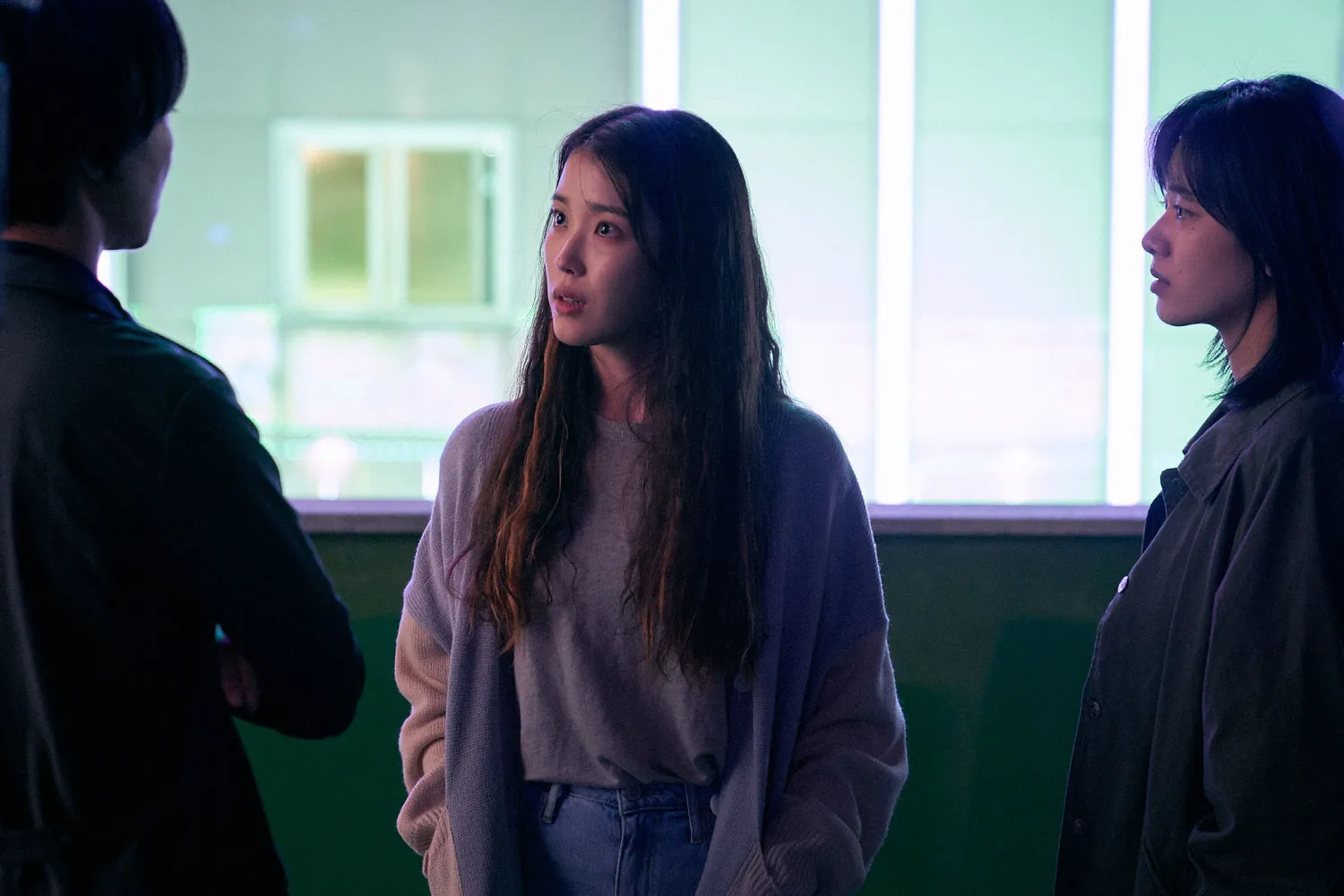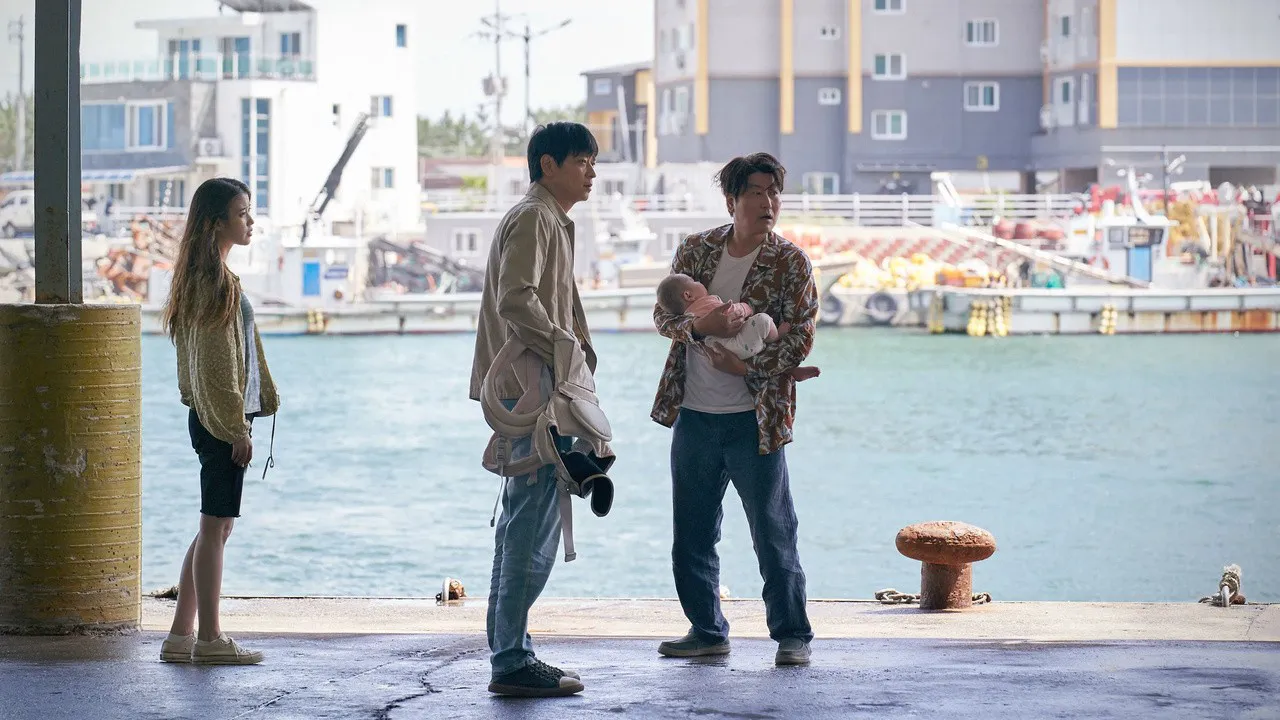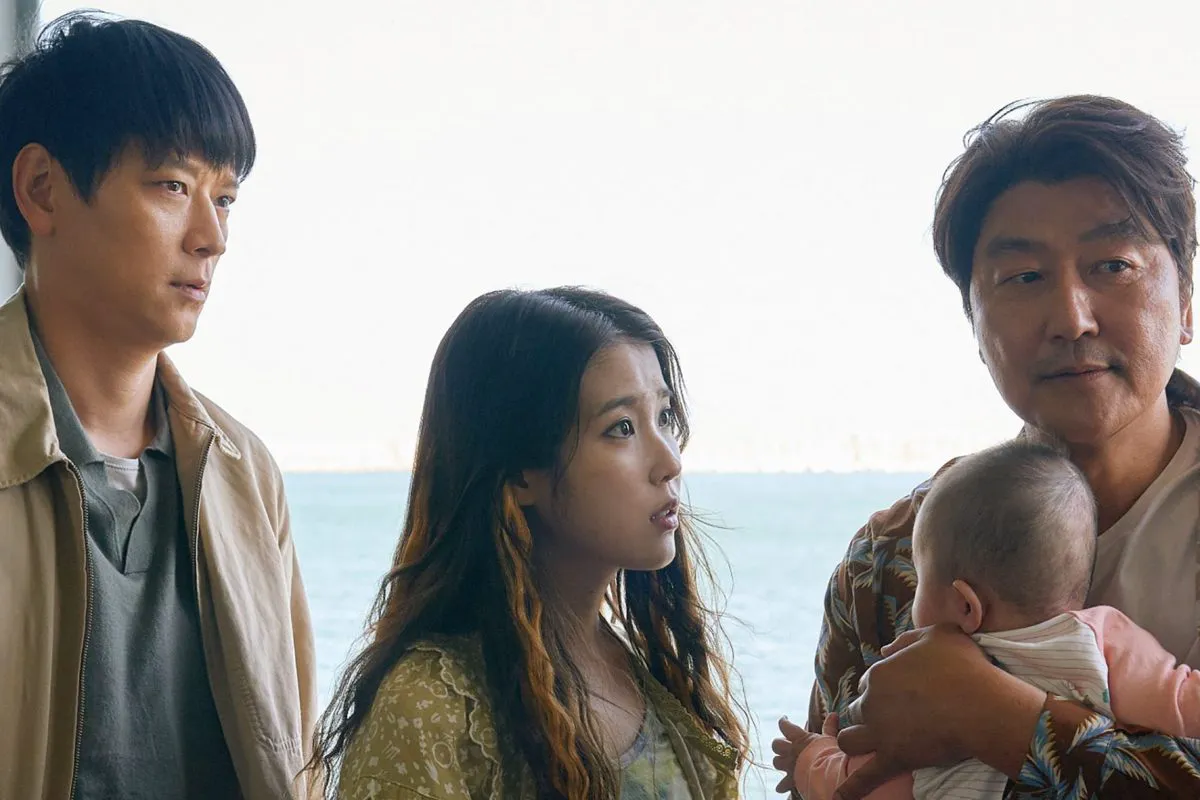Broker: A Korean Odyssey of Found Families and Second Chances
Set in contemporary South Korea, Broker opens with a poignant scene: a young woman abandons her infant outside a church. A well-meaning but opportunistic church worker, along with his accomplice, decides to sell the baby on the black market, bypassing legal adoption channels. However, the birth mother unexpectedly returns, and together, they embark on a journey to find the ideal parents for the child.
Hirokazu Kore-eda, the acclaimed Japanese director behind the 2018 Palme d’Or winner Shoplifters, returns with Broker, a film that resonates with his signature themes of unconventional families and the complexities of human connection. Broker unfolds as a familiar yet compelling narrative about found families, where characters, though unrelated by blood, are bound together by circumstance, tragedy, loneliness, and past mistakes.

Lee Joo-young in a scene from “Broker”
The film’s premise draws a parallel to the “baby box” introduced early on. These boxes offer a safe haven for desperate mothers, providing a comforting environment and soothing melodies. Broker similarly seeks to evoke primal instincts and address the raw, often unspoken pain of parental separation. So-young (played by Lee Ji-eun, a popular Korean singer and actress), standing in the rain, deviates from the norm by leaving her baby near the church door, rather than inside the box, with a note suggesting her intention to return. Meanwhile, a determined police detective (Bae Doona of Cloud Atlas fame) and her partner are closely monitoring the situation. They are investigating illegal baby trafficking, driven by the detective’s own mysterious loss, which remains veiled until the film’s conclusion.

Song Kang-ho in a scene from “Broker”
Following the introduction, Broker centers on the two hapless criminals (Song Kang-ho from Parasite and Gang Dong-won) who offer desperate parents a second chance and a new home for their children. As they prepare the infant for sale, So-young unexpectedly reappears. She doesn’t want to reclaim her child but rather to oversee his future. The trio embarks on a road trip across Korea, confronting their own experiences of abandonment and forging an unconventional family bond.

Song Kang-ho in a scene from “Broker”
Kore-eda’s Commentary on Society and Autonomy
While avoiding overt moralizing, Kore-eda subtly comments on societal issues and the autonomy of women. He often aligns with the police detective’s perspective, suggesting that parenthood should only be embraced with adequate resources, support, and readiness. In one scene, So-young expresses her fear that her son will never forgive her abandonment, while Dong-soo, a former orphan, asks that she not forgive his own mother for giving him up. Yet, Kore-eda consistently portrays his characters as deeply sympathetic – flawed yet relatable individuals who resonate with viewers. This humanistic approach is further enhanced by the film’s humor and its road-movie format, which appeals to audiences of all ages.
A Bitter-Sweet Conclusion
The intertwined storylines and complex human decisions culminate in a bittersweet ending reminiscent of Shoplifters, marked by betrayal, imprisonment, and the struggle to rebuild lives. Kore-eda reaffirms his compassionate vision, extending tenderness and care to his flawed outcasts. This empathetic perspective is particularly relevant in an era marked by a crisis of humanity.